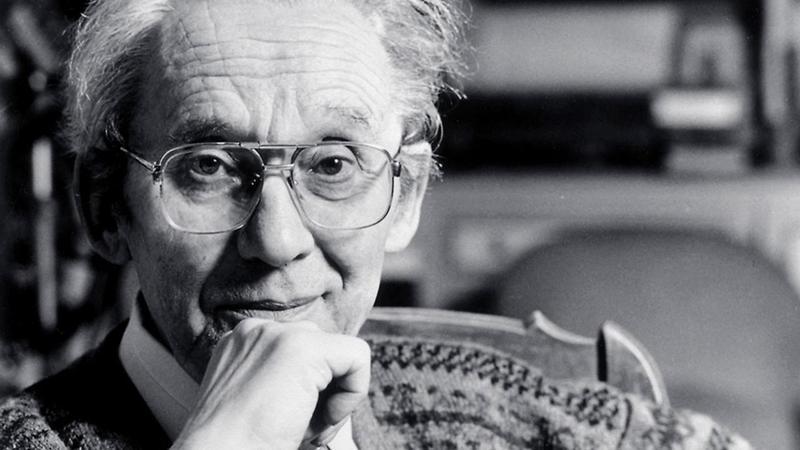The five philosophers who shape global politics in 2018
The five philosophers who shape global politics in 2018
Philosophy skeptics have a tendency to sniffingly dismiss the field as useless. “What’s the point?” they ask, shrugging at the greatest ideas in human history. Well, besides the intellectual pursuit of the truth etc., one point of philosophy is that it shapes the world around us. Societal instincts and political beliefs are often a reflection of theories put forward in philosophy books.
This is not just some historical trend but a continuing, modern phenomenon. Global leaders and grassroots ideologues continue to refer to philosophers as the inspiration behind their political standpoint. France’s President Emmanuel Macron spent decades working with a philosopher, as well as the American white nationalist movement called the Alt Right has its own philosophical heroes.
For those hoping to make sense of politics in 2018, here are some of the philosophers worth knowing.
France: Paul Ricœur
Macron’s regular use of the expression “ et en même temps” (“and at the same time”) is a reflection of the influence of Paul Ricœur. The philosopher, known as one of the biggest French thinkers of the 20th century, has been famous for his dialectic outlook. Rather than setting out one strident opinion, Ricœur (who perished 2005) tended to admit two contradictory perspectives and try to reconcile them.
Before Macron became a politician, he also spent two years working with Ricœur, and the philosopher’s thinking is evident in the way Macron conducts politics. The French president is pragmatic, and does not hold tight to any political ideology. Macron seems perfectly pleased to consider ideas from the left and right–making it difficult to predict how he will respond to unfolding events.
China: Confucius
Xi Jinping, the leader of China, is a vocal fan of the ancient philosopher Confucius. As China’s economical and international political clout grows, people hoping to understand Xi’s policies would do well to have a peek at the 2,500-year old Confucian school of philosophy.
Much of Xi’s curiosity about Confucianism is opportunistic, asserts Bryan W. Van Norden, a philosophy professor at Yale-NUS College. “He sometimes cites the Confucian classics the way some cynical US politicians quote the Bible,” writes Van Norden in an email to Quartz. “Because Confucianism is paternalistic, Xi promotes it in order to give the people of China a set of values to believe in that he hopes will encourage obedience.”
Most people in China are no longer beholden to Communist values, states Van Norden, and Xi utilizes Confucianism to encourage deference. This is a misreading, he notes as “Confucius stresses governing by persuasion” and consistently using “the happiness of the common people” as the supreme aim.
That stated, Xi will appear to genuinely share some Confucian ideals. As Van Norden explores in his book, Taking Back Philosophy: A Multicultural Manifesto, Confucius ardently believed in the significance of public officials’ integrity.
Russia: Aleksandr Dugin
He may not be a good philosopher, but the man known as “Putin’s Brain” certainly considers himself a philosopher. Dugin draws on a dubious interpretation of Martin Heidegger to argue strongly against acceptance and use of technology.
A big fan of US president Donald Trump, whom he has called “the American Putin,” Dugin also believes there should be several world powers and that Russia should lead the block that once covered the Soviet Union.
Dugin’s writing is incoherent to the point of being deranged, and the extent of his influence is uncertain. But regardless of whether Russian President Vladimir Putin carefully reads Dugin’s work, the philosopher certainly has a high profile within Russia.
The European Union: Jürgen Habermas
The leaders of the European Union don’t have to read between the philosophical lines: One of the great thinkers of the 20th century is still alive, now aged 88, and writing on the European Union (among other topics).
Jürgen Habermas is a member of the Frankfurt School, a group of influential thinkers whose members include Herbert Marcuse (the intellectual guru of American hippies, recently featured in the Coen Brothers’ Hail Caesar), Walter Benjamin (one of the most influential cultural theorists of time), and Theodor Adorno and Max Horkheimer (whose joint work The Dialectic of Enlightenment, is the flagship text of the Frankfurt School).
Habermas considers that a properly working EU could be a potent form of democracy at its very best. He’s angry at the governmental elites and associations (including the European Council) that he considers are wielding unchecked power. Habermas is a cautious critic, who cares deeply about the ideals of the European Union. His work demonstrates just how far we’d lose, if the EU fail.
The Alt Right: Nick Land
The white nationalist group sometimes called the Alt Right isn’t an enlightened political movement, but it is nevertheless influenced by philosophy. Various threads of alt right ideology draw a 1990s neo-fascist philosophy made by British academic Nick Land and known as Dark Enlightenment.
The doctrine, also popular among some Silicon Valley leaders, has been described as “an acceleration of capitalism to a fascist point,” and its own thoughts center on technology, warfare, feudalism, corporate power, and racism. Throughout history, fascists have distorted ideas in philosophical works to serve their function, and Dark Enlightenment is the most recent case of such a happening.
Philosophy has a reputation for remaining inside its ivory tower, but its own notions shape and inform the views of people who wield power. Philosophers such as Confucius, Ricœur, and Habermas are well worth reading since they are fascinating. Today, it is worth studying them through the lens of their political philosophies they have inspired.
Source: Quartz
Be the first to post a message!
